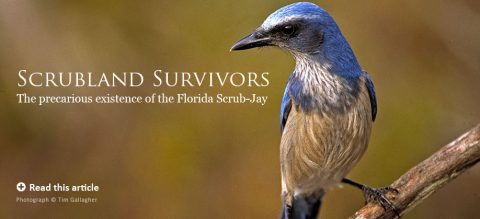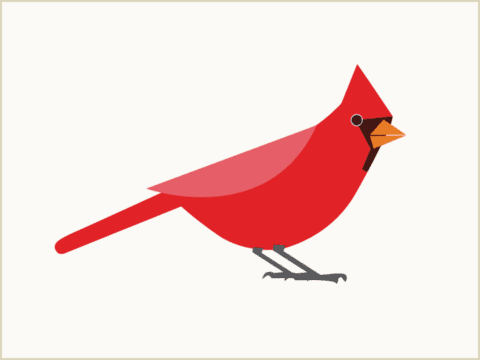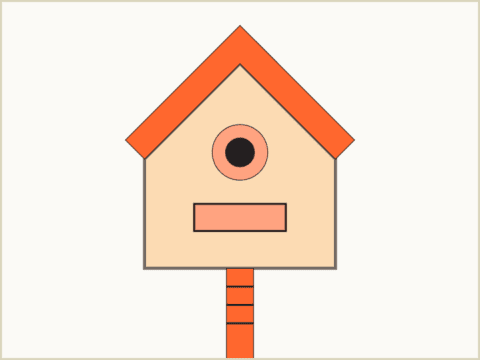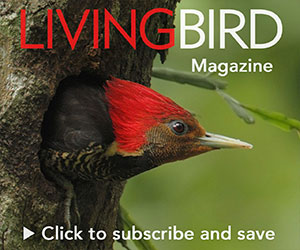The Catbird Seat: They Burn Birders, Don’t They?
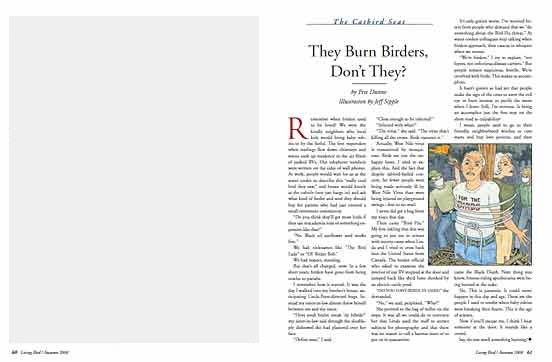
Remember when birders used to be loved? We were the kindly neighbors who local kids would bring baby robins to by the fistful. The first responders when starlings flew down chimneys and wrens took up residency in the air filters of parked RVs. Our telephone numbers were written on the sides of wall phones. At work, people would wait for us at the water cooler to describe this “really cool bird they saw,” and bosses would knock at the cubicle (not just barge in) and ask what kind of feeder and seed they should buy for parents who had just entered a small retirement community.
“Do you think they’ll get more birds if they use macadamia nuts or something expensive like that?”
“No. Black oil sunflower seed works fine.”
We had nicknames like “The Bird Lady” or “Ol’ Birder Bob.”
We had respect, standing.
But that’s all changed, now. In a few short years, birders have gone from being oracles to pariahs.
I remember how it started. It was the day I walked into my brother’s house, anticipating Uncle-Peter-directed hugs. Instead my sister-in-law almost threw herself between me and my niece.
“Hove youh beehn neeah ’ny bihrds?” my sister-in-law said through the double-ply dishtowel she had plastered over her face.
“Define near,” I said.
“Close enough to be infected?”
“Infected with what?”
“The virus,” she said. “The virus that’s killing all the crows. Birds transmit it.”
Actually, West Nile virus is transmitted by mosquitoes. Birds are just the unhappy hosts. I tried to explain this. And the fact that despite tabloid-fueled concern, far fewer people were being made seriously ill by West Nile Virus than were being injured on playground swings—but to no avail.
I never did get a hug from my niece that day.
Then came “Bird Flu.” My first inkling that this was going to put me in arrears with society came when Linda and I tried to cross back into the United States from Canada. The border official who asked to examine the interior of our RV stopped at the door and jumped back like she’d been shocked by an electric cattle prod.
“DO YOU HAVE BIRDS IN HERE?” she demanded.
“No,” we said, perplexed. “Why?”
She pointed to the bag of millet on the steps. It was all we could do to convince her that Linda used the stuff to attract subjects for photography and that there was no reason to call a hazmat team or to put us in quarantine.
It’s only gotten worse. I’ve received letters from people who demand that we “do something about the Bird Flu threat.” At water coolers colleagues stop talking when birders approach, then caucus in whispers when we retreat.
“We’re birders,” I try to explain, “not lepers, not infectious-disease carriers.” But people remain suspicious, hostile. We’re involved with birds. This makes us accomplices.
It hasn’t gotten so bad yet that people make the sign of the cross to avert the evil eye or burn incense to purify the room when I leave. Still, I’m nervous. Is being an accomplice just the first step on the short road to culpability?
I mean, people used to go to their friendly, neighborhood witches to cure warts and buy love potions, and then came the Black Death. Next thing you know, broom-riding apothecaries were being burned at the stake.
No. This is paranoia. It could never happen in this day and age. These are the people I used to soothe when baby robins were breaking their hearts. This is the age of science.
Now if you’ll excuse me, I think I hear someone at the door. It sounds like a crowd.
Say, do you smell something burning?

All About Birds
is a free resource
Available for everyone,
funded by donors like you
American Kestrel by Blair Dudeck / Macaulay Library
